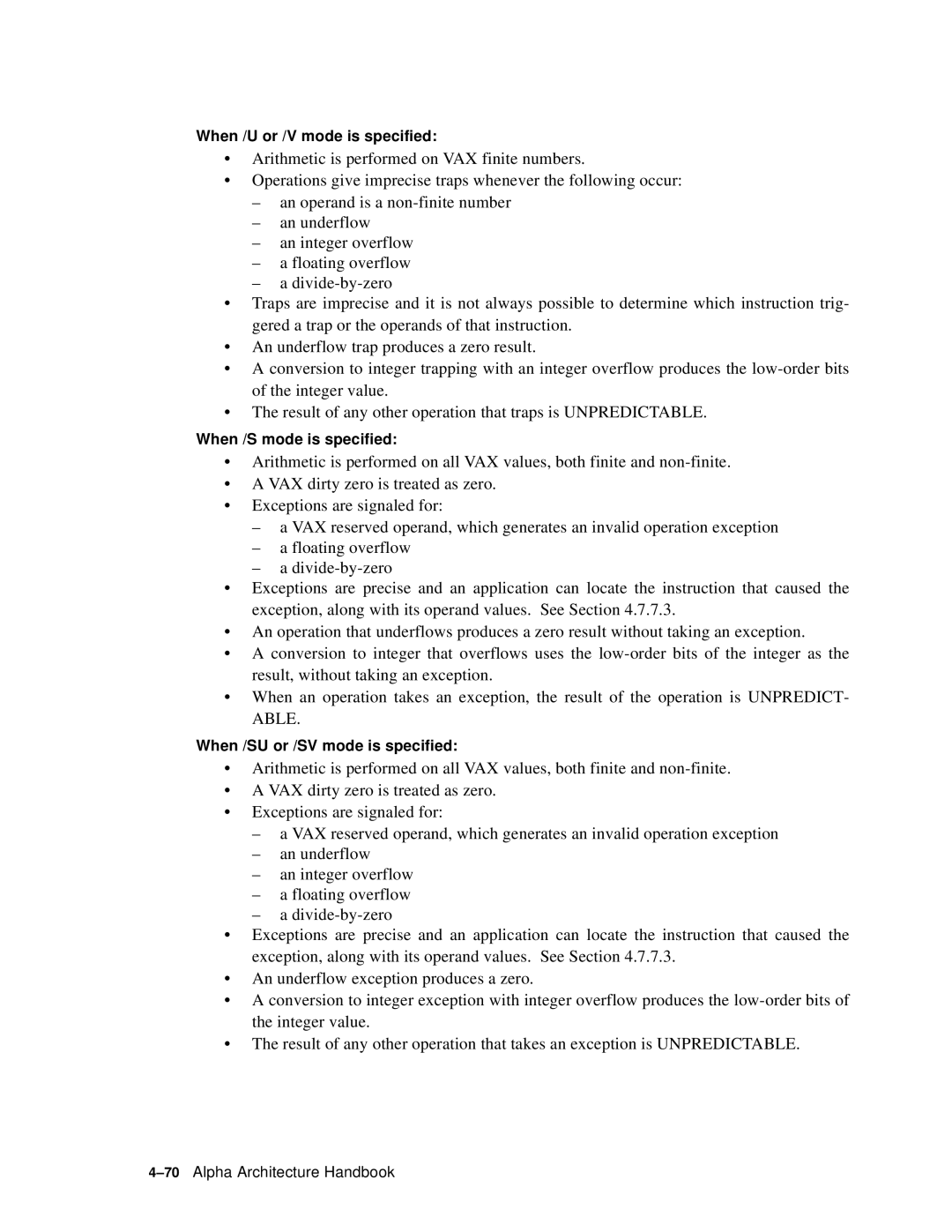When /U or /V mode is specified:
•Arithmetic is performed on VAX finite numbers.
•Operations give imprecise traps whenever the following occur:
–an operand is a
–an underflow
–an integer overflow
–a floating overflow
–a
•Traps are imprecise and it is not always possible to determine which instruction trig- gered a trap or the operands of that instruction.
•An underflow trap produces a zero result.
•A conversion to integer trapping with an integer overflow produces the
•The result of any other operation that traps is UNPREDICTABLE.
When /S mode is specified:
•Arithmetic is performed on all VAX values, both finite and
•A VAX dirty zero is treated as zero.
•Exceptions are signaled for:
–a VAX reserved operand, which gen erates an invalid operation exception
–a floating overflow
–a
•Exceptions are precise and an application can locate the instruction that caused the exception, along with its operand values. See Section 4.7.7.3.
•An operation that underflows produces a zero result without taking an exception.
•A conversion to integer that overflows uses the
•When an operation takes an exception, the result of the operation is UNPREDICT- ABLE.
When /SU or /SV mode is specified:
•Arithmetic is performed on all VAX values, both finite and
•A VAX dirty zero is treated as zero.
•Exceptions are signaled for:
–a VAX reserved operand, which gen erates an invalid operation exception
–an underflow
–an integer overflow
–a floating overflow
–a
•Exceptions are precise and an application can locate the instruction that caused the exception, along with its operand values. See Section 4.7.7.3.
•An underflow exception produces a zero.
•A conversion to integer exception with integer overflow produces the
•The result of any other operation that takes an exception is UNPREDICTABLE.
